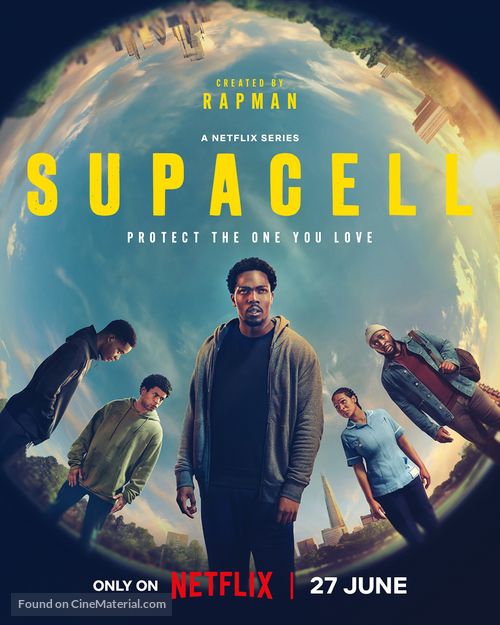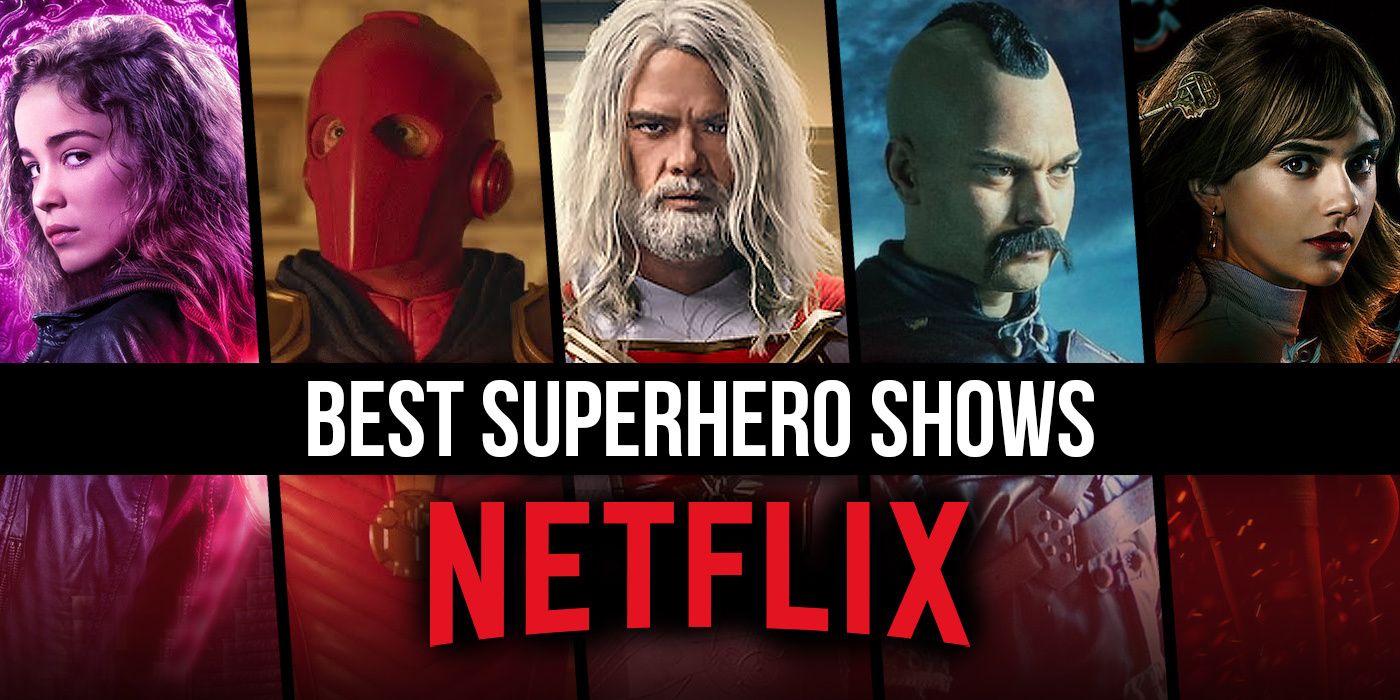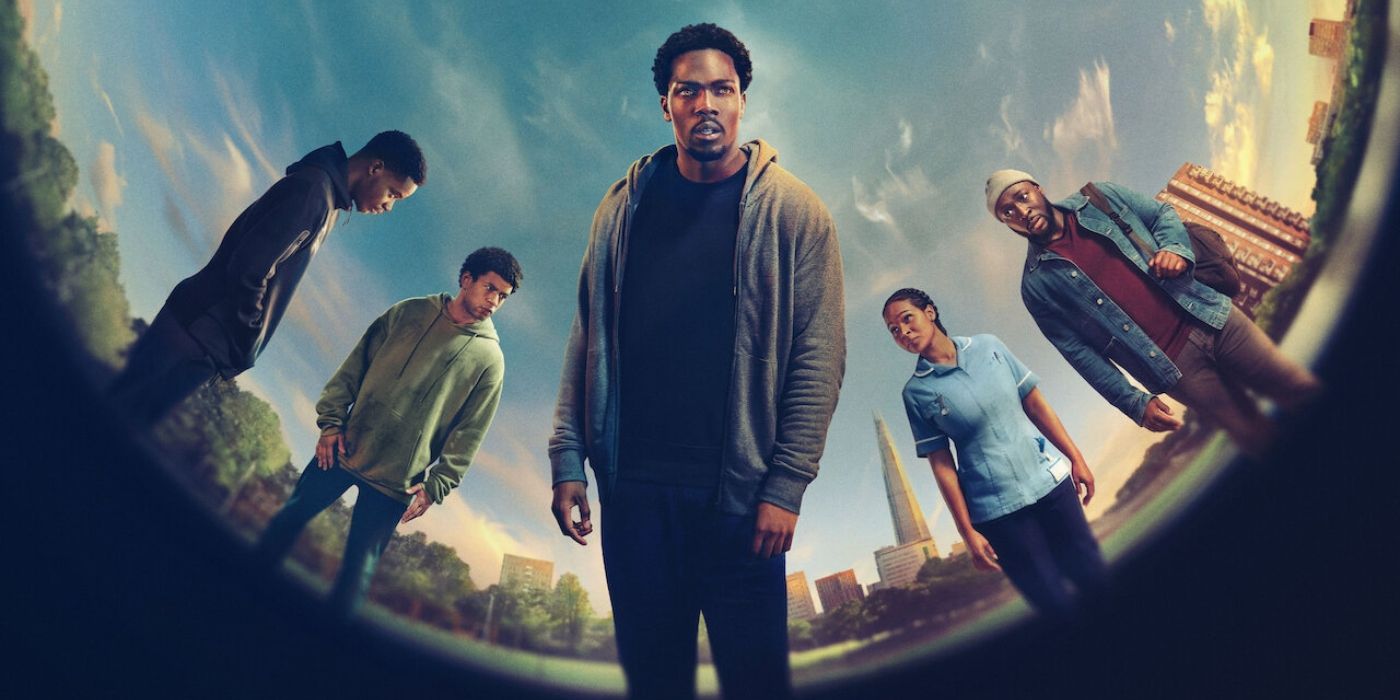Editor’s Note: The following contains spoilers for ‘Supacell’.
The Big Picture
-
Supacell
on Netflix introduces diverse South Londoners with unique abilities in a complex, suspenseful superhero series. - Andre’s character showcases the social injustices and power imbalances that drive people to extreme decisions.
- The show’s core message emphasizes the importance of standing up against oppression and using one’s strength for good.
Supacell, directed by Rapman, is Netflix’s answer to the “realistic superhero” subgenre, an addition that somehow manages to be refreshingly distinct. It focuses on a group of South Londoners who discover that they all contain a “Supacell,” a variation of the genes that cause sickle-cell anemia that grants their hosts a wide array of fantastical abilities. The freshman outing showed a complex conspiracy revolving around this scientific discovery, with our core cast of likable characters quickly coming to blows with a shady organization “researching” this cell and their teams of hired superhumans abducting anyone with powers.
These people are extremely different in both personality and how they respond to their sudden abilities, each one embodying some aspect of the television show’s many central themes — though one’s thematic burden is much heavier to carry than the others. Because, while each character’s unique plights contribute to the series’ overall messages about control and true power, this person’s constant misfortune spotlights the flawed social mechanics that allow atrocities like the ones in this program to function. He is a loving, strong, and immensely tragic character, and it’s through Andre’s (Eric Kofi-Abrefa) experience that Supacell truly triumphs at telling such an ingenious new story.

Supacell
When five ordinary South Londoners discover they have extraordinary powers, it’s down to one man to bring them together to save the woman he loves.
- Genre
- Superhero
- Debut Date
- June 27, 2024
‘Supacell’ Shows That Being a Hero Doesn’t Pay Well
Supacell is a distinct superhero story, and not only because it is one of the few in this genre unafraid to put people of color at the forefront of its storytelling. It focuses on a group of South Londoners from very different walks of life; there’s Michael (Tosin Cole) who only wants a happy life with his girlfriend, Tazer (Josh Tedeku) buckling under pressures that no child should face, Rodney (Calvin Demba) just trying to make ends meet, and Sabrina (Nadine Mills) struggling with the responsibilities everyone places on her.
As each one discovers their ability, the series highlights how, for as whimsical as powers are, the ordinary person wouldn’t be able to suddenly spring into a life of crime-fighting and heroism. It also calls back to the many terrible examples of medical experimentation that has historically impacted Black communities, the way its main antagonist — a shady corporation masquerading as a sickle-cell care facility — treats its patients, mirroring the experience of individuals like Henrietta Lacks whose bodies were experimented on without their consent. It’s an innovative story showcasing not-often-discussed aspects of the superhero genre and modern society, with so many of these elements appearing in Andre’s tumultuous character arc.
Andre’s adult life hasn’t known ease; after being wrongfully convicted on drug charges at the age of 18, he spent most of his son’s formative years in prison, finally getting released only to find that most jobs wouldn’t hire him because of his criminal record. This experience is terrible enough, highlighting the unjust criminal system and how cruelly criminals are treated after release, and it’s only complicated further when Andre discovers that he has super-strength.
This power is initially a blessing as, while he doesn’t make a habit of doing it, a single punch on an ATM gave the man thousands of (technically stolen) dollars and allowed him to finally pay off the debts that basic living had allotted him. These actions get the attention of the company, though, and he’s eventually captured and given a choice: either be imprisoned and experimented on, with his captors implying they’ll soon bring in his son for similar “testing,” or act as an enforcer, getting paid to kidnap innocent people just like him. It’s an impossible decision he makes for the sake of his family, and when he eventually begins working as a kidnapper, Andre reveals Supacell’s true message: superpowers or not, it’s the folks with privilege that get to decide the rules.
‘Supacell’ Speaks on Power Imbalances
It would be unfair for any viewer to criticize Andre for joining the organization’s hunting squads because, as is reiterated constantly throughout Supacell, those with actual power love to give those without the illusions of choice rather than autonomy. Whether it be this impossible choice or when an 18-year-old Andre refuses to confess who the drugs actually belonged to, knowing that snitching would make him an outcast in his community, it’s the rules others place on us that drive people to do things they never would otherwise. He is shown to be a kind, caring man, yet he is turned into a malicious brute by the people who view him and those like him as tools to utilize in any way they see fit. This doesn’t excuse a person’s negative actions, as the season’s secondary antagonist Krazy (Ghetts) thoroughly enjoys kidnapping others, but Andre shows how rules (both social and institutional) demand the worst out of a person — with the people in charge re-affirming that their subordinates have free will while promising to ruin their life should they make the “wrong choice.”
Eventually, Andre joins our central cast in defiance of the organization, turning his back on his former captors/employers and vowing to use his abilities to aid in their destruction. Yet it’s the implications of this choice that truly embody the series’ tragic semantics because, as heroic as he may be, Andre still has countless problems that are weighing him down. Whether it be this malicious organization or a corrupt criminal justice system, Andre was victimized due to rules that weren’t built in the favor of people like him, and while the organization is much more direct in its threats, it still perfectly mirrors the drawn-out destruction things like incarceration has on those who escape imprisonment.
It’s a statistical fact that the lack of support former inmates receive once released often leads to them being arrested and sent back to prison, just like how this show’s evil organization makes it clear that anyone who manages to escape them should expect their entire lives to fall apart until they return. Andre’s arc is one of determination and hope, the man trying his hardest to be someone his son can look up to while navigating the unfairness of multiple systems trying to use his body. Through this tragedy, he emphasizes the show’s core messages, but it’s unfortunate how much he has to suffer to do so.

Related
The Best Superhero Shows on Netflix Right Now
From capes and heat vision to hoodies and fists, these are the best superheroes you’ll find on Netflix.
‘Supacell’ Doesn’t Work Without Andre
As devastating as Andre’s character arc is, he’s not the only character to suffer throughout the first season. Tazer’s loss of his mom early on in life (another victim of the shady organization) and the violent acts he’s forced to commit as the burgeoning member of a gang are terrible to watch, and it’s distressing to see Sabrina commit her entire life to her sister only to watch the woman be abused and eventually kidnapped as well. Each of these characters is saddled with their own heartbreaking part of Supacell’s core themes, yet just like how he defines this hardship, Andre also emphasizes the program’s hope.
Through his actions at the end of the season and his commitment to his loved ones throughout, he stresses not only the terrible things that keep entire communities oppressed, but also how essential one’s humanity is in fighting back against this pressure. How there is always an opportunity to turn one’s strength against their oppressors and become a part of the fight against them rather than being used as a tool by them. It’s sad to watch him be forced to carry so much of this literal, emotional, and thematic weight, but hey, Andre is strong — super-strong, in fact. And as his fierce determination to keep his son safe and courage in the season’s climax showed, he’s ready to take on and dismantle anything this organization (and society) throws at him.
Supacell is available to stream on Netflix in the U.S.
WATCH ON NETFLIX

